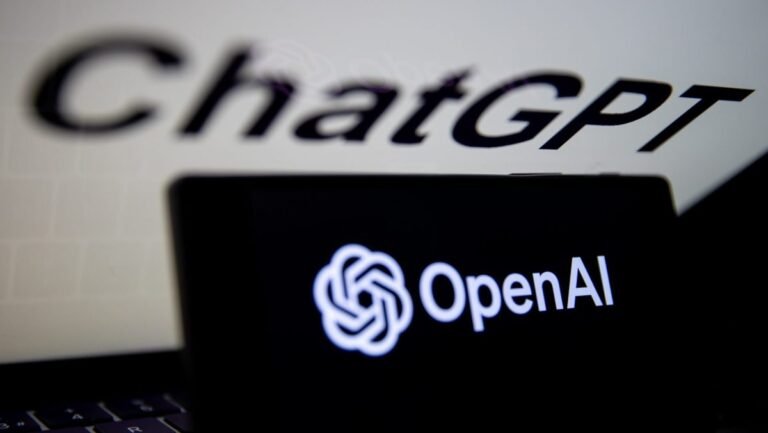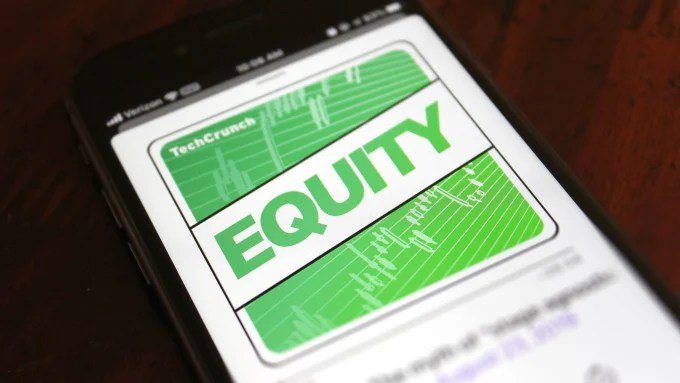
Smaller companies are just as eager to use AI tech to supercharge their sales processes as their bigger competitors.
Darwin AI, a Brazil-based AI startup, is developing a conversational AI assistant for small businesses across Latin America who want to get into AI, but don’t have an IT staff.
The assistant is designed to interact with customers in a more human-like manner to help generate more revenue.
Using AI, Darwin takes into account the needs of companies and then filters leads and customers.
As more companies implement automation into their processes, the conversational AI market is expected to grow over 20% annually through 2030.

Google said Thursday it plans to roll out the SoundPod, its portable speaker designed to instantly validate and announce successful payments, to small merchants across India over the coming months.
The Google Pay expansion in India, where the company is among the mobile payment market leaders, comes even as the firm winds down some of its payments apps in the U.S.
The sound-box was invented to serve small Indian merchants unable to afford regular point-of-sale devices but accepting of UPI payments.
The company said merchants who use SoundPod to process 400 payments in a month will get $1.5 in cashback.
Reliance, India’s largest firm by market cap, also began testing a similar device at its campus last year, TechCrunch earlier reported.

French small launch developer Latitude has closed $30 million in new capital as it eyes the first flight of its Zephyr rocket in 2025.
While other rocket companies are going bigger, developing even more massive rockets, Latitude is taking a different approach: light, small, and hopefully cheap enough to beat out competitors.
Its first rocket, Zephyr, will stand at just 62 feet and will be capable of delivering up to 100 kilograms of payload to low Earth orbit.
The two-stage rocket will be powered by eight 3D-printed engines called Navier, which Latitude is developing in-house.
In a statement, Latitude CEO and cofounder Stanislas Maximin said 2024 would be a “pivotal year” before Zephyr’s first flight in 2025.

Valves play a critical role in the spacecraft’s architecture, regulating the flow of pressurents like helium and propellants.
“There’s a thousand different ways you can make a valve unhappy,” said Jake Teufert, CTO of Benchmark Space Systems, a Vermont-based startup developing propulsion systems for spacecraft.
Valves must also have ultra-low leakage requirements; Teufert said that some valves have allowable leakage rates equivalent to leaking only one gram of helium over the course of 200 years.
Engineers run spacecraft through a host of tests on the ground, but the flight environment can only be matched to an extent, Teufert explained.
But adding two valves (or any additional subcomponents) can create whole new failure modes that you would never have with one valve.

OpenAI is launching a new subscription plan for ChatGPT, its viral AI-powered chatbot, aimed at smaller, self-service-oriented teams.
Aptly called ChatGPT Team, the plan provides a dedicated workspace for teams up to 149 people using ChatGPT as well as admin tools for team management.
ChatGPT Team also lets people within a team build and share GPTs, custom apps based on OpenAI’s text-generating AI models.
ChatGPT Team is priced at $30 per user per month or $25 per user per month billed annually — higher than ChatGPT Plus, OpenAI’s individual premium ChatGPT plan, which costs $20 per month.
ChatGPT Team seems tailor-made for small- and medium-sized business customers who want team-oriented ChatGPT features without having to pay top dollar for them.

Are megafunds squeezing out small VCs and distorting the seed market?
Hello, and welcome back to Equity, a podcast about the business of startups, where we unpack the numbers and nuance behind the headlines.
This is our Friday show, and today, Mary Ann Azevedo and Alex Wilhelm took on the week’s biggest tech, startup and venture capital news.
Here’s what we got into:And that’s Equity for this week!
For episode transcripts and more, head to Equity’s Simplecast website.

You may be looking to switch out your current budgeting app for a better one, or perhaps you’re someone who has traditionally relied on spreadsheets.
For individuals, a good budgeting app can help you save money by creating and sticking to a monthly budget.
For startups and small businesses, a good budgeting app can help you understand your company’s financial health and make informed decisions.
Best apps for startups and small businessesFreshBooksFreshBooks is a simple tool that can help startups and small businesses create a budget and stick to it.
Although it’s marketed as a personal budgeting app, Toshl can be a good tool for new startups looking to understand and manage their finances for a fraction of the cost of budgeting apps marketed toward small businesses.

Sono SionGerman automaker Sono once led the charge to bring solar panels to electric cars with the five-seater Sono Sion hatchback.
No longer an automaker, Sono now focuses on embedding its solar tech into other vehicles.
GM, Honda’s affordable EVsGeneral Motors and Honda said in April 2022 that they’d co-develop millions of small and affordable EVs.
Months later, it seems the acquirer has yet to restart VanMoof production or resume repairs.
On the other handIt’s been a bummer year for fans of small EVs, but all is not lost.

Bank and technology platform Kapital continues to rake in venture capital, grabbing another $40 million in Series B dollars and $125 million in debt financing.
We previously covered Kapital’s $20 million Series A in May that included $45 million in debt.
Rene Saul and Fernando Sandoval co-founded Kapital in 2020 to provide similar financial visibility to small businesses, using data and artificial intelligence, that large enterprises have.
“Small businesses represent 90% of the world’s businesses; however, in Mexico, only 10.5% of those small businesses have access to total bank credit,” Saul said.
“That’s what we’re fixing — we give them visibility of their finances.”In 2023, Kapital’s customer base grew to 80,000 small businesses in Mexico, Colombia and Peru.

The investment arm of the UK retail bank M&G has led a funding of $340 million into Udaan, a business-to-business e-commerce startup, in one of the largest financing rounds secured by an Indian startup in 2023.
The Bengaluru-headquartered startup, which helps merchants in smaller Indian cities and towns secure inventories from major brands as well as gain access to working capital, said the new funds include some convertible debt.
Existing backers Lightspeed Venture Partners and DST Global have also participated in the new round, which awaits regulatory nod.
Udaan competes with a number of players, including Mukesh Ambani’s $100 billion Reliance Retail, the largest retail chain in India.
Udaan didn’t share how M&G and other investors valued the startup in the new round.













